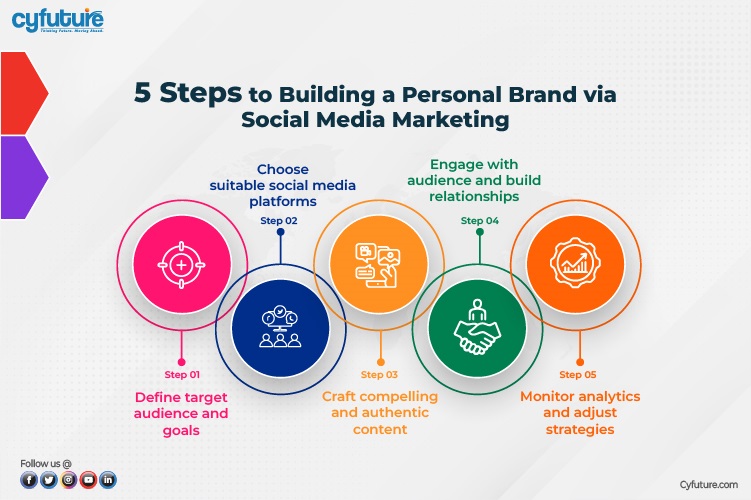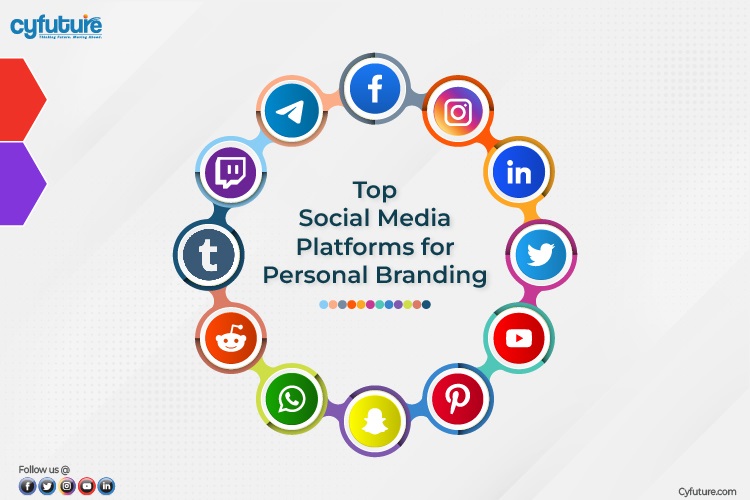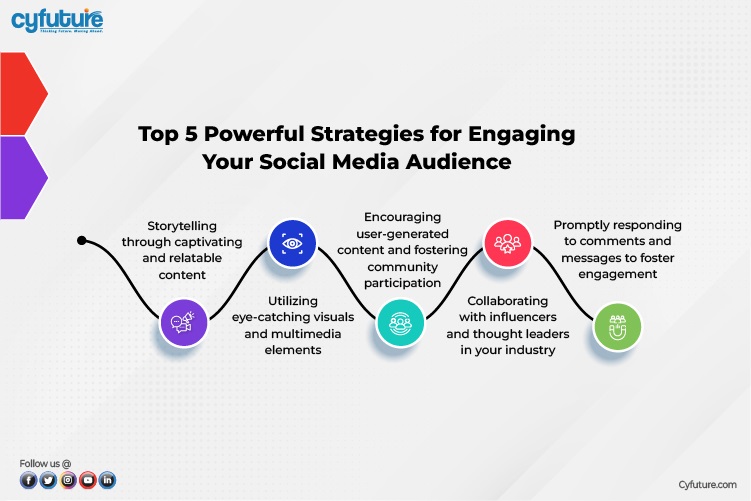-
Get Cloud GPU Server - Register Now!
Toggle navigation

In today’s digital age, personal branding has become increasingly important. It refers to the process of managing and promoting one’s unique identity and reputation, both online and offline. Personal branding allows individuals to showcase their expertise, values, and personality, positioning themselves as authorities in their respective fields. With the rise of social media marketing, building a personal brand has become more accessible and powerful than ever before.
Social media marketing provides a range of tools and platforms that allow individuals to amplify their personal brand. These platforms, such as Facebook, Instagram, Twitter, LinkedIn, and YouTube, offer opportunities to connect with a wide audience, share valuable content, and engage in meaningful conversations. By leveraging the power of social media, individuals can establish themselves as thought leaders, expand their network, and gain recognition and influence in their industry.
This blog aims to delve into the realm of personal branding and explore how social media marketing can be a game-changer in building a strong personal brand. Throughout the blog, we will discuss various strategies and techniques to effectively leverage social media platforms for personal branding. From crafting an authentic and compelling brand story to creating engaging content, we will provide actionable tips and insights to help you establish a powerful online presence.
Whether you are an entrepreneur, freelancer, or professional looking to enhance your career prospects, this blog will equip you with the knowledge and tools to harness the potential of social media marketing for personal branding. Join us as we unravel the secrets to building a standout personal brand in the digital landscape.
Want to read more? Read the blog!

Understanding your target audience is crucial for effective social media marketing. By defining your audience and gaining deep insights into their needs and interests, you can tailor your content and engagement strategies to resonate with them, resulting in higher engagement, conversions, and brand loyalty.
Research shows that 72% of adults in the UK actively use social media platforms, with Facebook being the most popular platform, followed by YouTube and Instagram. These platforms provide a wealth of data and analytics that can help you understand your audience better. By utilizing social media analytics tools, you can uncover valuable information such as demographics, interests, online behaviors, and engagement patterns of your target audience.
Conducting audience research goes beyond just analyzing social media metrics. Online surveys can also be an effective tool for gathering data directly from your audience. By crafting well-designed surveys and distributing them through social media channels or email marketing, you can collect insights into their preferences, pain points, and motivations.
Once you have gathered sufficient data, creating buyer personas can provide a comprehensive and actionable understanding of your target audience. Buyer personas are fictional representations of your ideal customers, based on real data and market research. By delving into the demographics, interests, goals, challenges, and buying behaviors of your audience, you can create more targeted and personalized content that resonates with them.
Choosing the right social media platforms is a crucial step in your social media marketing strategy. With a variety of platforms available, each with its own unique features and demographics, it’s essential to understand which platforms align with your personal brand and target audience.
Let’s take a closer look at the popular social media platforms and their key demographics. Facebook continues to dominate the social media landscape, with over 2.89 billion monthly active users worldwide. It caters to a wide range of age groups, making it a versatile platform for various personal brands. Instagram, with its visually-oriented content, attracts a younger demographic, with 67% of its users falling within the 18-29 age range. Twitter, known for its real-time updates and concise messaging, appeals to a diverse audience, including journalists, influencers, and professionals.
When selecting the most suitable platforms for your personal brand, consider factors such as your target audience’s demographics, preferences, and the type of content you plan to create. For example, if your personal brand revolves around visually appealing content, platforms like Instagram, Pinterest, or TikTok might be a good fit. On the other hand, if your brand focuses on industry insights and thought leadership, LinkedIn or Twitter could be more suitable.
Once you’ve identified the platforms that align with your personal brand and target audience, it’s crucial to optimize your profiles to ensure consistency and professionalism. This includes using high-quality profile and cover photos, writing compelling and keyword-rich bios, and ensuring your branding elements, such as colours and fonts, align with your overall brand image.

Crafting engaging and authentic content is paramount in social media marketing for building a strong personal brand. High-quality and valuable content helps you establish credibility, connect with your audience, and differentiate yourself from competitors.
Research indicates that 53% of social media users in the UK follow brands to learn about new products or services. This highlights the importance of providing valuable content that educates, entertains, or inspires your audience. By understanding their needs and interests, you can develop a content strategy that resonates with them and supports your personal brand goals.
To create engaging content, storytelling plays a crucial role. Stories have the power to captivate and evoke emotions. Whether you’re sharing personal experiences, case studies, or success stories, incorporating storytelling techniques helps you connect with your audience on a deeper level.
Visual elements are also essential in capturing attention and increasing engagement. Studies show that posts with images or videos receive higher engagement rates than text-only posts. Including eye-catching visuals, such as infographics, images, or videos, can make your content more compelling and shareable.
Additionally, incorporating user-generated content can boost engagement and authenticity. User-generated content refers to content created and shared by your audience, such as testimonials, reviews, or user-submitted photos. Encouraging your audience to share their experiences and stories related to your personal brand creates a sense of community and trust.
Engaging with your audience is a critical aspect of social media marketing when it comes to building a strong personal brand. By actively interacting with your followers and cultivating meaningful relationships, you can foster loyalty, increase brand awareness, and attract new followers.
Research shows that 71% of consumers who have had a positive experience with a brand on social media are likely to recommend it to others. This highlights the importance of creating a positive and engaging experience for your audience. By responding to comments, messages, and mentions promptly and thoughtfully, you can show your followers that you value their input and appreciate their support.
To increase your social media reach and attract new followers, consider implementing techniques such as:

Collaborating with influencers and thought leaders in your industry can be a powerful strategy in social media marketing to enhance your personal brand. By leveraging their expertise, reach, and influence, you can tap into new audiences, gain credibility, and establish yourself as a prominent figure in your field.
Research indicates that 89% of marketers consider influencer marketing to be effective in achieving their marketing goals. This highlights the significant impact that influencers can have on brand awareness and audience engagement. By partnering with influencers who align with your personal brand and target audience, you can leverage their existing following and credibility to expand your reach.
To identify relevant influencers for partnerships and collaborations, consider factors such as their niche, expertise, engagement rates, and audience demographics. Tools like social media analytics and influencer marketing platforms can assist in finding suitable influencers for your personal brand.
Approaching influencers with a well-crafted and personalized pitch is crucial. Highlight the mutual benefits of the collaboration, showcasing how it can provide value to both parties and their respective audiences. Building genuine relationships with influencers based on shared interests and values can lead to long-term partnerships and continued brand exposure.
When collaborating with influencers, it’s important to develop a clear strategy and set goals. Determine the type of content you want them to create, whether it’s sponsored posts, product reviews, or collaborative projects. By aligning your objectives and messaging, you can ensure that the collaboration resonates with your target audience and strengthens your personal brand.
Monitoring and analyzing your social media performance is essential in the realm of social media marketing. By tracking key metrics and gaining insights into your audience’s behavior and preferences, you can make data-driven decisions to optimize your personal brand strategy.
Research shows that 78% of marketers use social media analytics to measure their performance and make informed decisions. This highlights the importance of understanding the impact of your social media efforts and identifying areas for improvement.
Social media analytics tools provide a range of features to help you track and analyze your performance. These tools offer valuable data on metrics such as reach, engagement, click-through rates, follower growth, and audience demographics. By leveraging these insights, you can understand which content resonates with your audience, identify the best times to post and tailor your strategies accordingly.
Interpreting the data is crucial in extracting meaningful insights. Look for patterns, trends, and correlations in the metrics to understand what drives engagement and conversions. For example, if you notice that posts with certain hashtags or topics generate higher engagement, you can adjust your content strategy to focus on those areas.
Making informed decisions based on your analytics is key to optimizing your personal brand strategy. Use the data to refine your content, timing, and targeting to maximize your impact. Regularly review your analytics, set benchmarks, and track your progress over time to ensure continuous improvement.
Maintaining consistency and authenticity is paramount in social media marketing for building a strong personal brand. Consistency builds trust and recognition, while authenticity establishes a genuine connection with your audience.
Research shows that 91% of consumers prefer to buy from an authentic brand, and 63% of consumers trust influencers more if they perceive their content as authentic. This highlights the significant impact of authenticity in building credibility and loyalty.
Developing a unique and recognizable brand voice is essential in maintaining consistency. Your brand voice encompasses the tone, language, and style of communication you use across your social media platforms. By defining your brand voice and consistently applying it in your content, you can create a cohesive and memorable brand experience for your audience.
Staying true to your values is another key aspect of authenticity. Clearly defining your values and incorporating them into your personal brand messaging helps you connect with like-minded individuals and attract an audience that resonates with your beliefs.
Consistently delivering value to your audience is crucial in building trust and loyalty. By consistently providing high-quality content that educates, entertains, or solves problems, you establish yourself as a reliable source of information and expertise.
Remember, building a personal brand is a long-term commitment that requires continuous effort and dedication. By implementing the strategies and tips shared in this blog, you can enhance your brand’s visibility, engage with your audience, and establish yourself as an authority in your field.
Now is the time to take action. Start by defining your target audience, conducting audience research, and creating buyer personas. Select the social media platforms that align with your brand and optimize your profiles for maximum impact. Craft valuable and engaging content, leverage influencer collaborations, and regularly monitor your performance using social media analytics.
Stay consistent with your brand voice and values, and never underestimate the power of authenticity. Engage with your audience, respond to their comments and messages, and foster meaningful connections. Remember, building a personal brand takes time, so be patient and stay committed to your goals.
Are you ready to take your personal brand to the next level? Start implementing these strategies today and watch your brand flourish in the world of social media marketing.